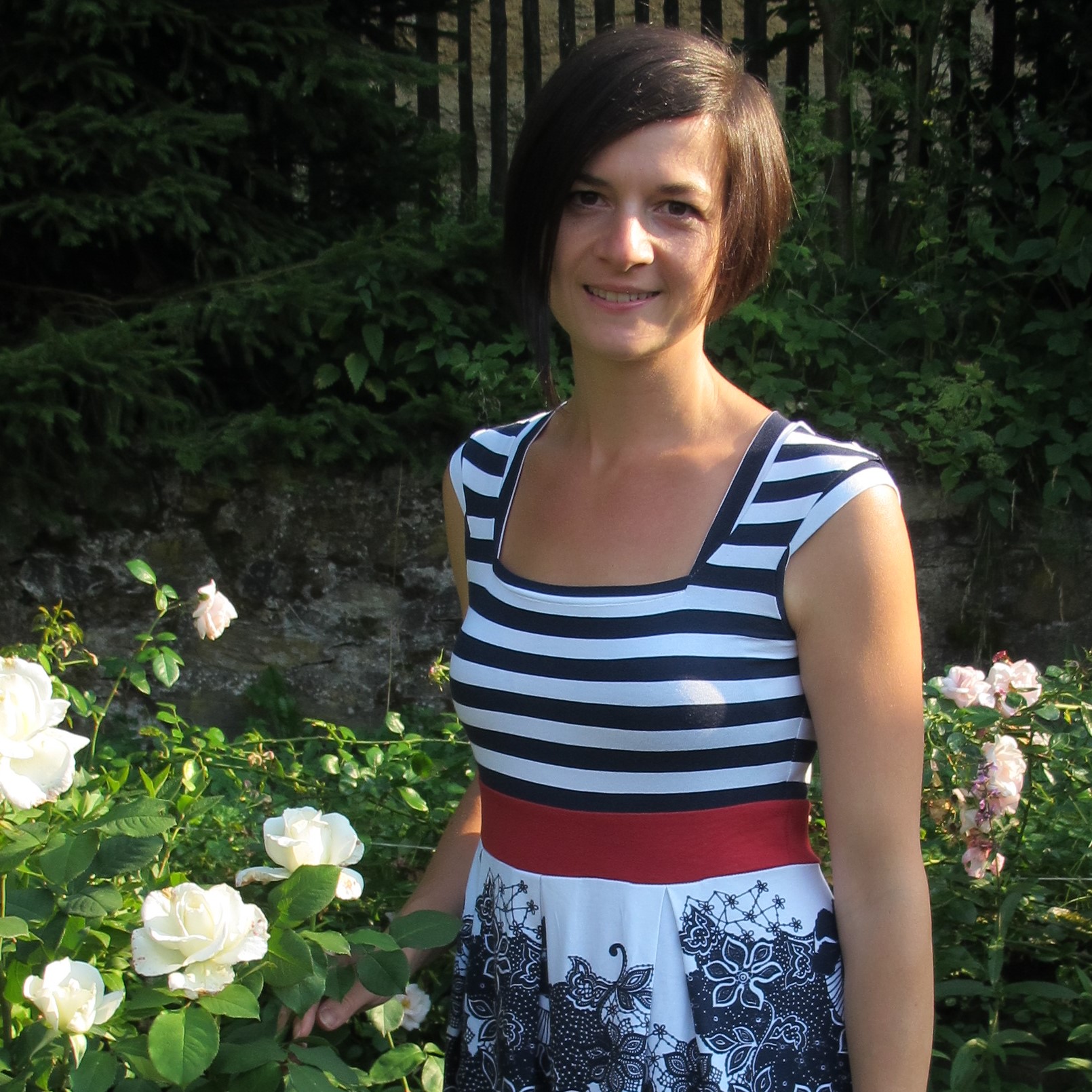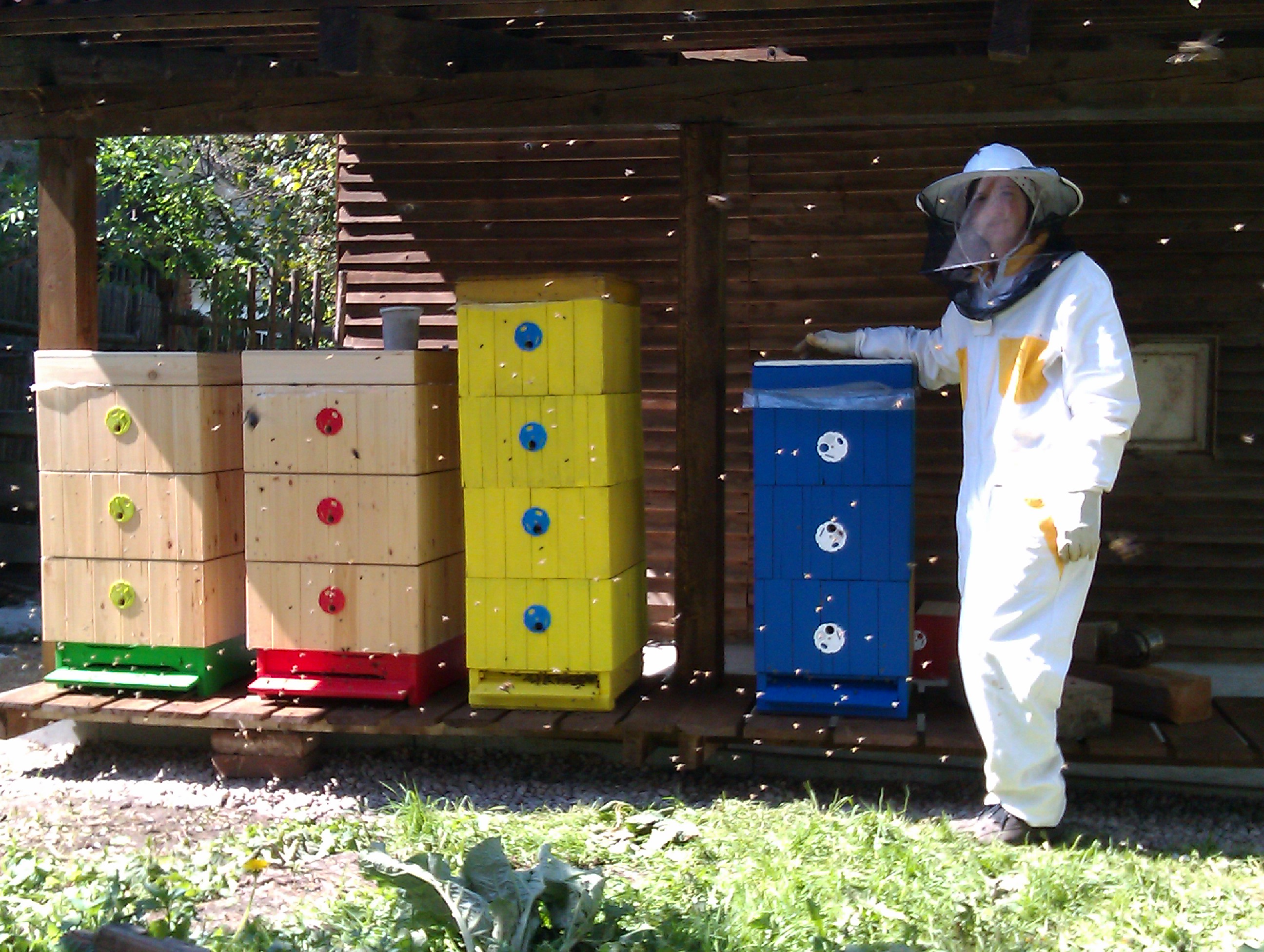Lenka Vochocová was born in Plzeň, Czech Republic in 1979. Her academic career is connected to the Department of Media Studies of the Faculty of Social Sciences, Charles University, where she focuses on online (political) participation and its gender aspects as a member of the PolCoRe group. She founded a small NGO called Inventura in 2005 where she makes documentary films together with people with learning disabilities. She has two children and green fingers, and besides gardening and raising sheep and pastured pigs, her biggest hobby is beekeeping.

How did you become a beekeeper?
I started in 2008, after the winter during which the Varroa Destructor caused a huge pan-European problem with bees, leading to a significant decrease in the number of bee colonies. This is a mite that attacks bees and destroys them completely, and that was a very bad year. I started because my great-grandfather was a beekeeper, two of my uncles are beekeepers. I always wanted to start, and that was a good year to start. Now I have my own eight colonies.
How does beekeeping fit with the academic calendar?
The winter term is great because bees are “sleeping”, all you have to do is to treat them with some obligatory medicine. It all begins in April or May when you have to start taking care of them. The busiest months for beekeepers are May, June and July, and then the beekeeper’s autumn comes, early in August. We prepare the bees for winter and it all ends in September. So in relation to the academic calendar, May and June are a bit problematic. But generally my strategy as a beekeeper is not to disturb the bees too much. My attitude is not to do too much because bees know best what to do. So it is not as much work as it seems, just a couple of days altogether.

Since you write about gender issues, what does a gender perspective of the beekeeping community look like?
The majority of beekeepers in the Czech Republic are elderly and male. It used to be a business of grandfathers, but it started to change recently as younger people are becoming beekeepers. The head of one of the biggest organisations of beekeepers in the Czech Republic is a woman and from the perspective of an ordinary member of the organisation, I don't experience anything disturbing. The factor beekeepers stress is age mainly, it is an important variable as beekeeping may be physically demanding. The elderly beekeepers are happy that there are some young ones and they try to teach us everything and let us organise and become the new leaders. It is rather ideology that divides people, traditionalists on one side and people with eco-attitude on the other. The main question is whether to treat bees against diseases or not and how, that is the main ideological cause of conflict, very similar to the general discussion about vaccination.
What do you see as your greatest achievement?
Me and my colleagues just had a local meeting and one of the beekeepers in his sixties said that he was surprised how the bees always teach him. You always think you have found the best way to do something, and you are trying new approaches, but in the end the bees decide what is best for them. They teach me that it is not in my hands, it is in theirs. The good thing about beekeeping is that it is not a competition, you do not have to achieve. It’s relaxing.
Would you recommend beekeeping as a hobby?
I would recommend it to those who like to collect things, who are pickers. I am this kind of person who can wait till the fruit is ripe, till the honey is there in the hives. Also, for those who like taking care of others. It helps you focus, so it is good for procrastinators. There is a set time when you have to go and offer the bees more space and wax frames, and do everything that needs to be done on time. It is good training for keeping a schedule.
Jelena Kleut